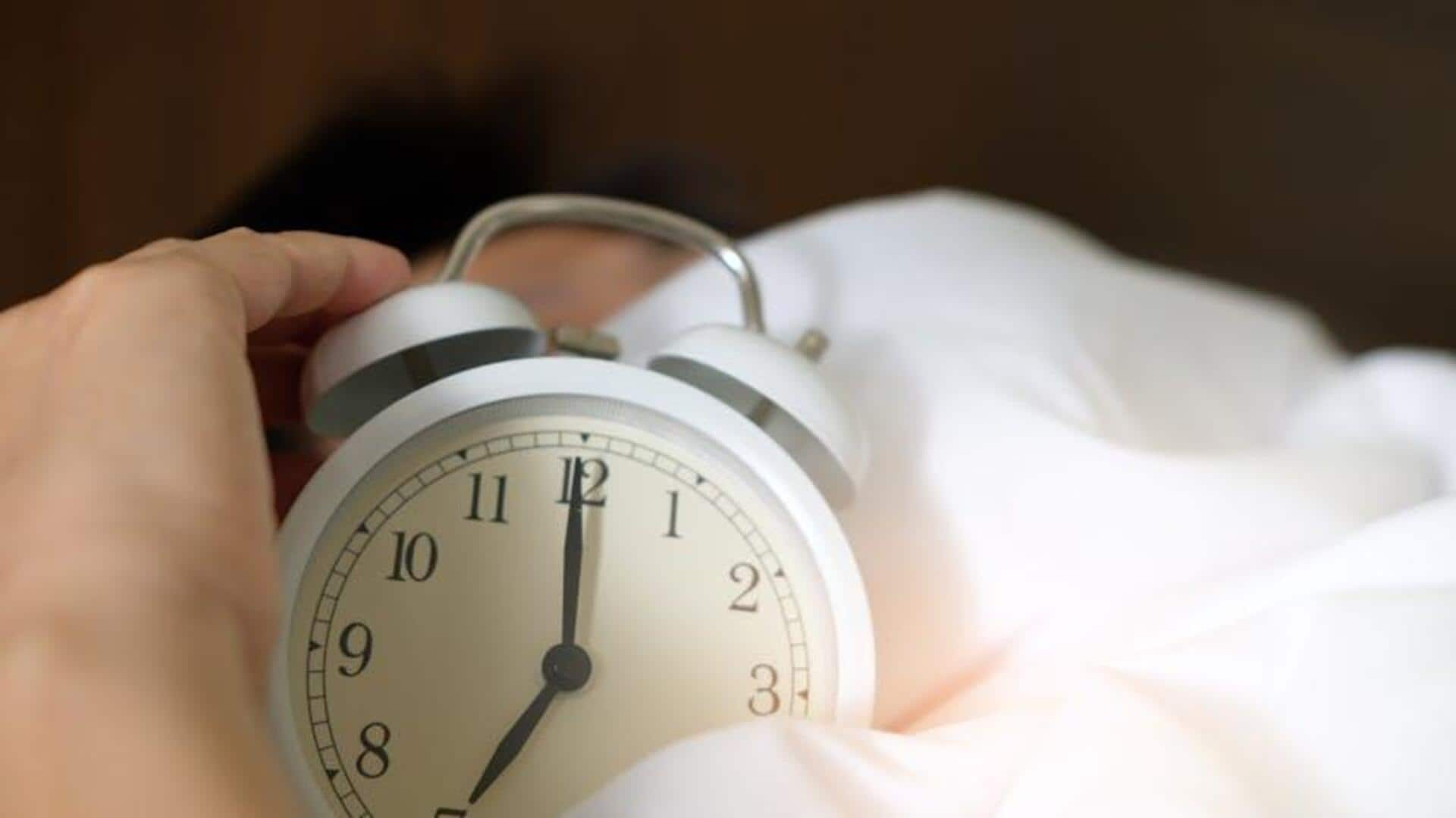
Improve your sleep by ditching these myths
What's the story
Sleep is critical for keeping healthy, but there are so many myths surrounding it.
These myths can cause bad sleep habits and even affect your health.
Knowing the truth about sleep can help improve your rest, and thus, make you function better on a daily basis.
Here, we debunk common sleep myths and provide factual insights for better sleep practices.
Individual needs
Myth: Everyone needs 8 hours of sleep
The idea that every single person needs exactly eight hours of sleep is a myth.
Sleep requirements depend on your age, lifestyle, and even individual health issues.
While some adults may do just fine with seven hours, others might need nine or more.
It's best to listen to your body and adjust your schedule accordingly.
Sleep debt reality
Myth: You can catch up on sleep over the weekend
The idea that you can make up for lost sleep over the weekend is a myth.
The "sleep debt" you accrue from not getting enough rest cannot be adequately wiped out in a day or two.
You should be ensuring you're getting enough sleep every night to remain both healthy and mentally sharp, not depending on weekend make-up sessions.
Health indicator
Myth: Snoring is harmless
Though snoring is usually regarded as a harmless nuisance, it can be a sign of some underlying health problems such as obstructive sleep apnea.
The condition interrupts breathing during sleep and impacts the quality of life overall.
If snoring is common or extreme, it is best to consult a doctor.
Disrupted rest
Myth: Alcohol helps you sleep better
While many believe that a particular bedtime habit could help you sleep better, that's a misconception.
Yes, it may seem to help at first by making you drowsy, but it actually hurts the sleep cycle.
More specifically, it disrupts the REM stages of sleep. This interference makes your sleep more fragmented and reduces the restorative benefits of good sleep.
So, relying on such methods for sleep could do more harm than good eventually.
Quality over quantity
Myth: More sleep is always better
While adequate rest is important, sleeping excessively isn't good either.
Oversleeping can be associated with a number of health problems, including depression or chronic fatigue syndrome.
By focusing on quality instead of quantity, you'd be doing yourself a favor in terms of physical and mental health.